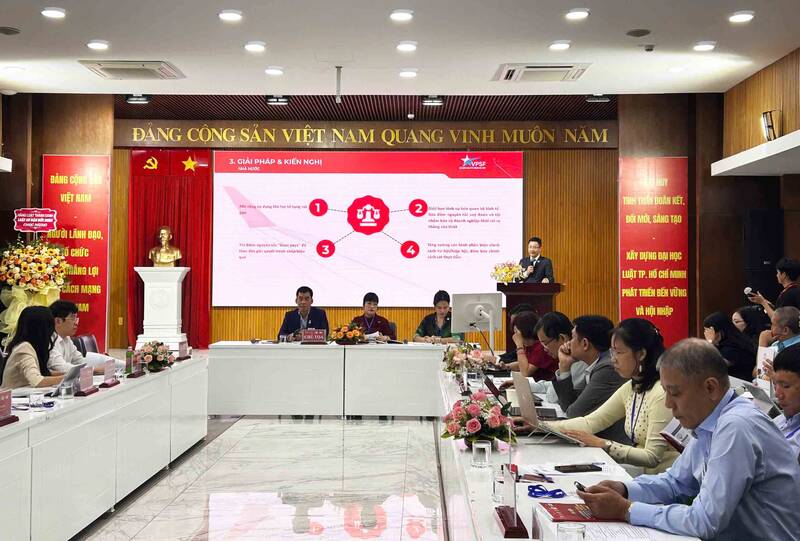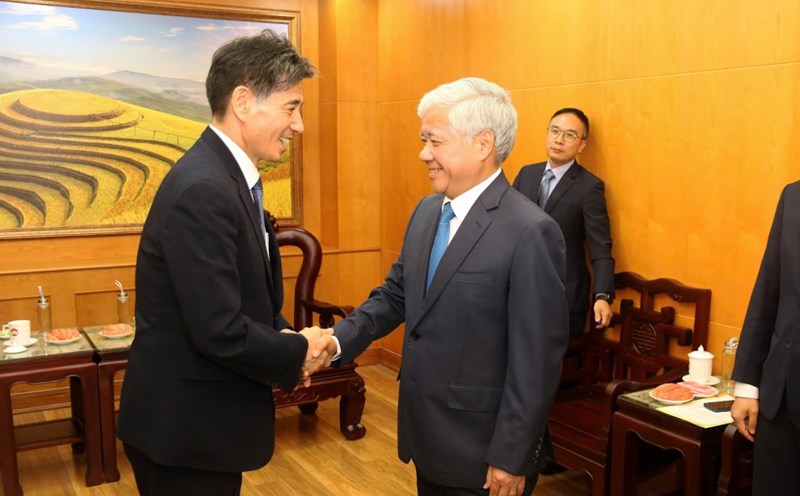On August 25, a workshop on "Creating institutions - Unblocking the flow of development" took place in Ho Chi Minh City within the framework of the Local Dialogue Round of the Vietnam Private Economics Forum 2025 organized by the Vietnam Young Entrepreneurs Association in coordination with Ho Chi Minh City University of Law and the Ho Chi Minh City Green Business Association.
At the workshop, Dr. Le Truong Son - Principal of Ho Chi Minh City University of Law - said that Resolution No. 57, Resolution No. 66, Resolution No. 68 and Resolution No. 59 of the Politburo have been issued and put into practice, setting a major goal of building a modern market economy, deeply integrated based on innovation. In particular, the private economic sector is identified as an important driving force.
According to Dr. Le Truong Son, to achieve the above goal, legal institutions must play a role in creating development, both ensuring transparency and unlocking all resources, while nurturing the spirit of entrepreneurship and protecting businesses from unnecessary risks.
In that spirit, he said that the workshop helps to recognize "bottlenecks" in institutions and policies, while proposing reform solutions to create a favorable legal environment for private economic development, contributing to the realization of the major goals stated in the above resolutions.

Agreeing with this view, Ms. Pham Thi Bich Hue - Vice President of the Vietnam Young Entrepreneurs Association - also affirmed the need for companionship between researchers, management agencies and the business community to remove obstacles from practice.
At the workshop, many experts pointed out the current situation of limitations in regulations and ownership rights that make the private sector in Vietnam unable to fully exploit its potential.
Accordingly, the proposals focus on reforming the law to regulate private economic activities such as clearly defining the boundary between civil, administrative and criminal violations; perfecting the Penal Code; improving the capacity of litigation agencies; at the same time promoting a dialogue mechanism, monitoring the implementation of economic laws...
These solutions are expected to create a more transparent and safer legal corridor for private enterprises, thereby arousing and maximizing the driving role of this region in economic development.
Not only stopping at the legal aspect, the workshop also recorded important suggestions on green economic development. Associate Professor, Dr. Nguyen Dinh Tho - Institute of Strategy and Policy on Agriculture and Environment (Ministry of Agriculture and Environment) - said that Vietnam is in a natural situation with a rich ecosystem to develop carbon credits in many fields such as smart agriculture, renewable energy, forest restoration, coral protection and marine biochemistry.
According to him, credits created from these projects can be standardized according to international criteria, and put into domestic and international transactions through modern exchanges.
Japan and many developed carbon markets have been providing important prototypes of infrastructure design, transaction processes, verification mechanisms, legal policies and coordination with management agencies. These are experiences that can be adjusted and applied in accordance with the context of Vietnam, contributing to opening up a direction of sustainable development, in parallel with economic growth.











